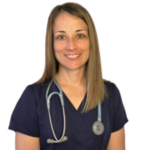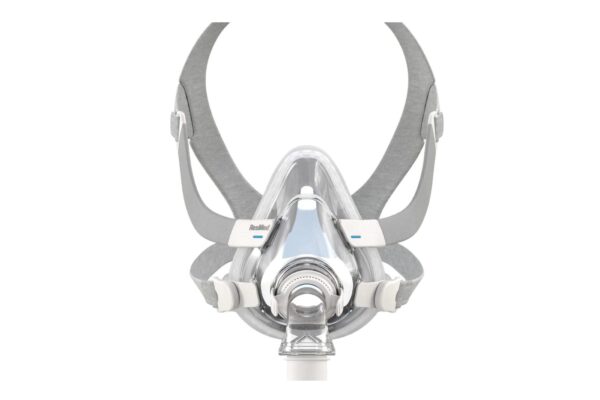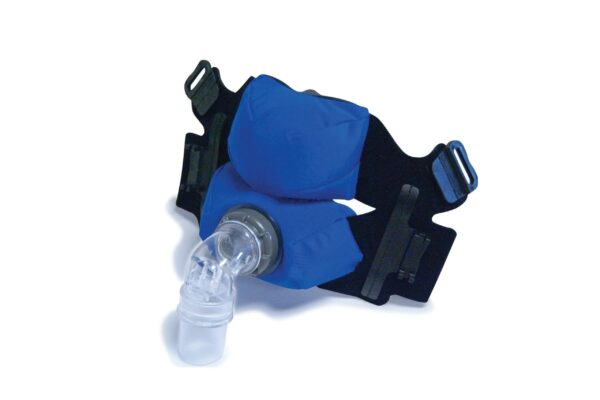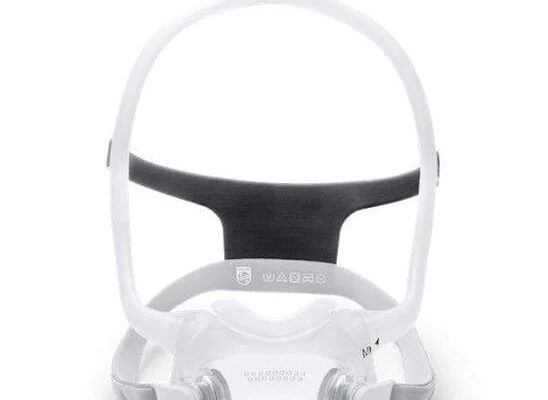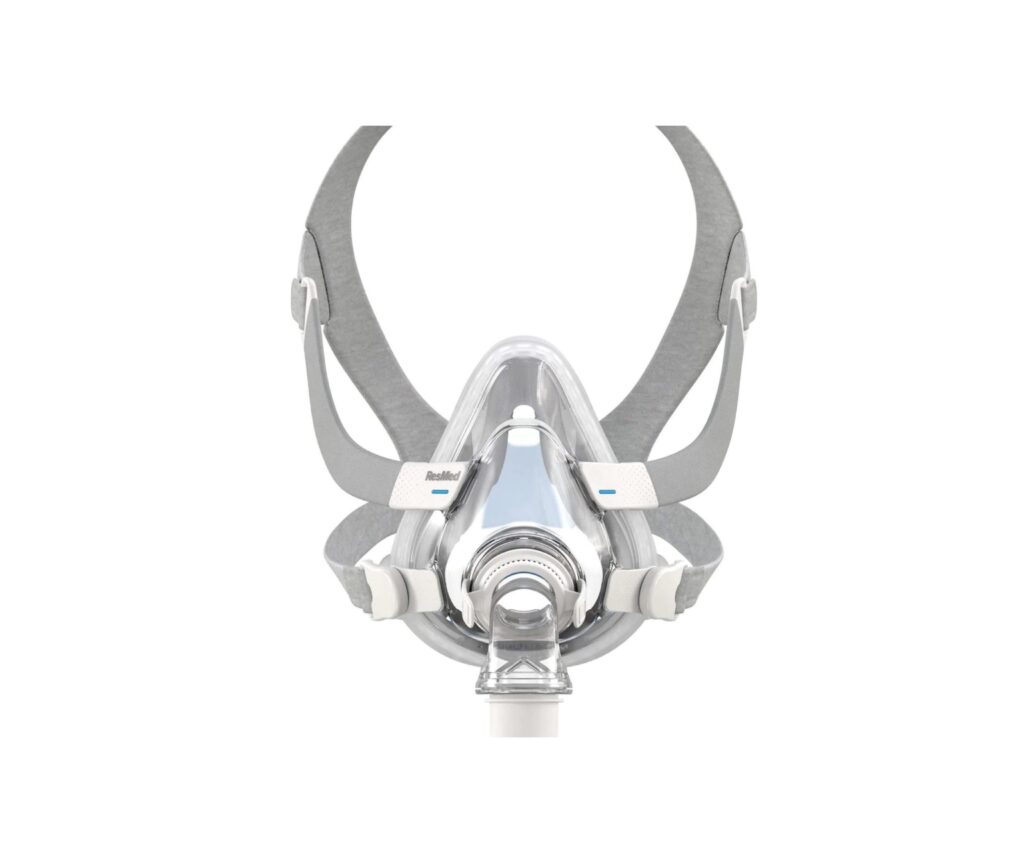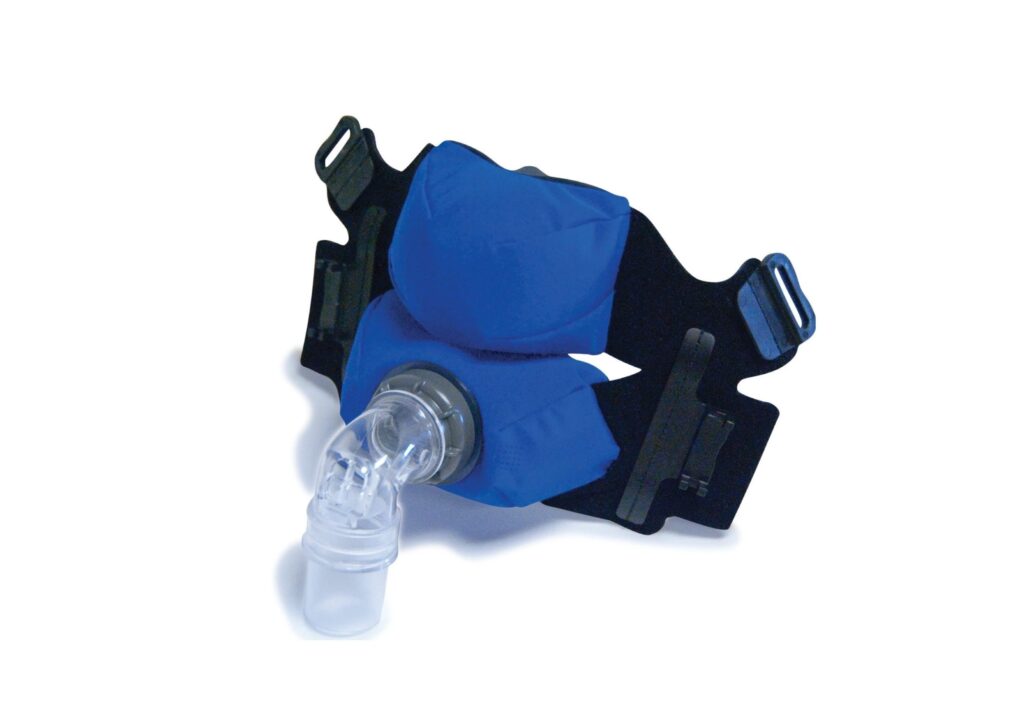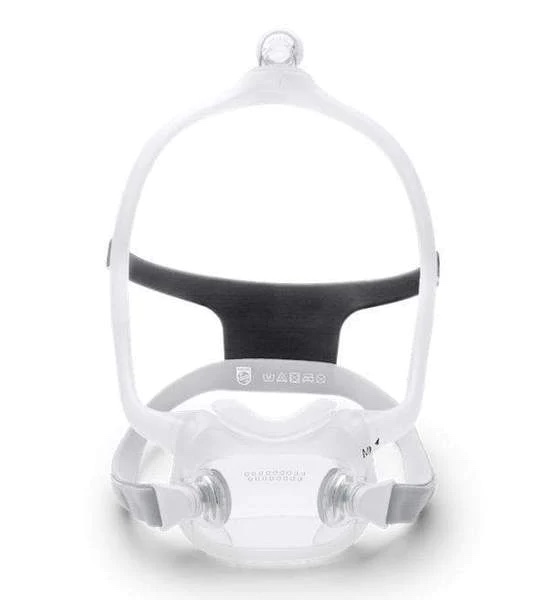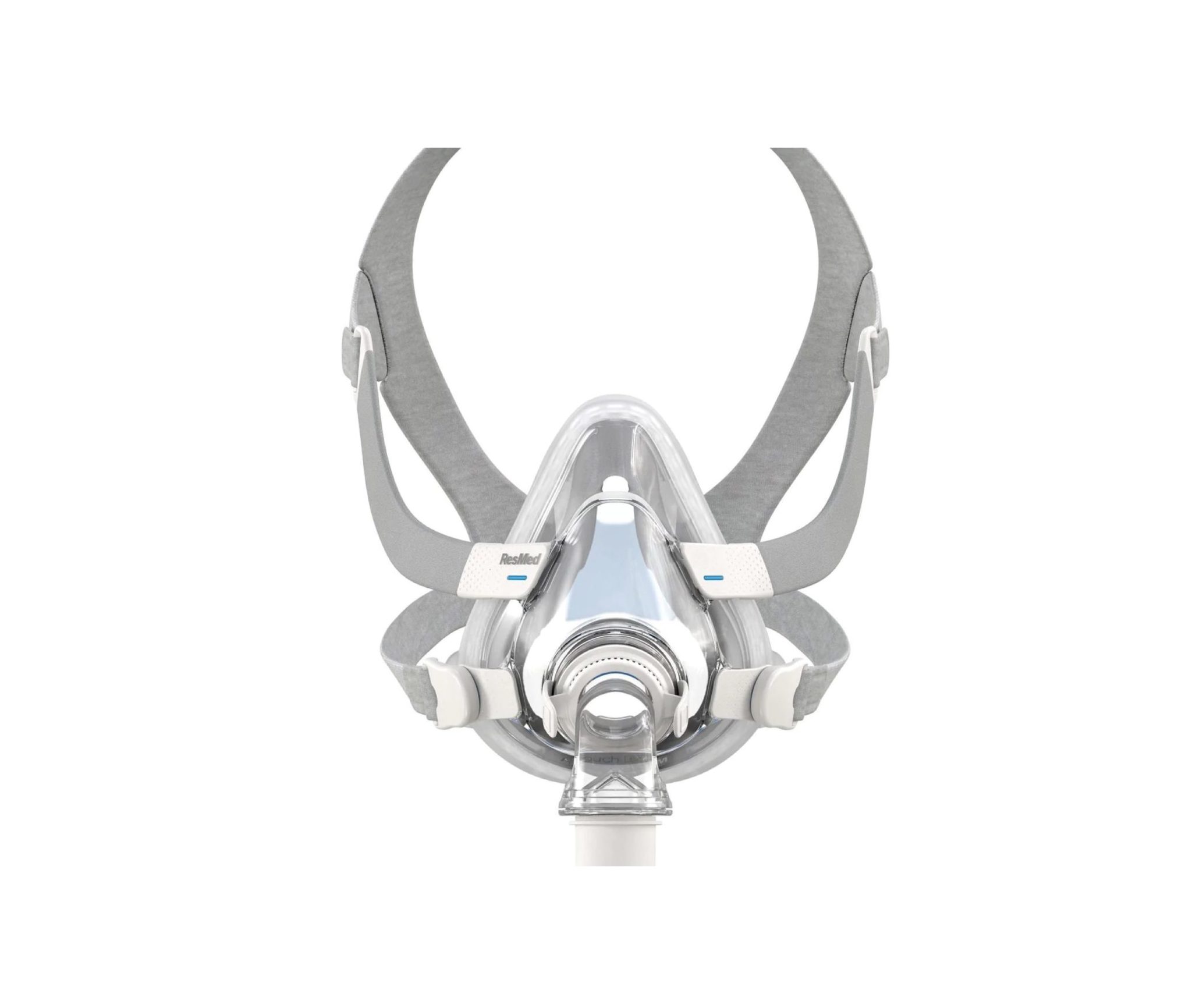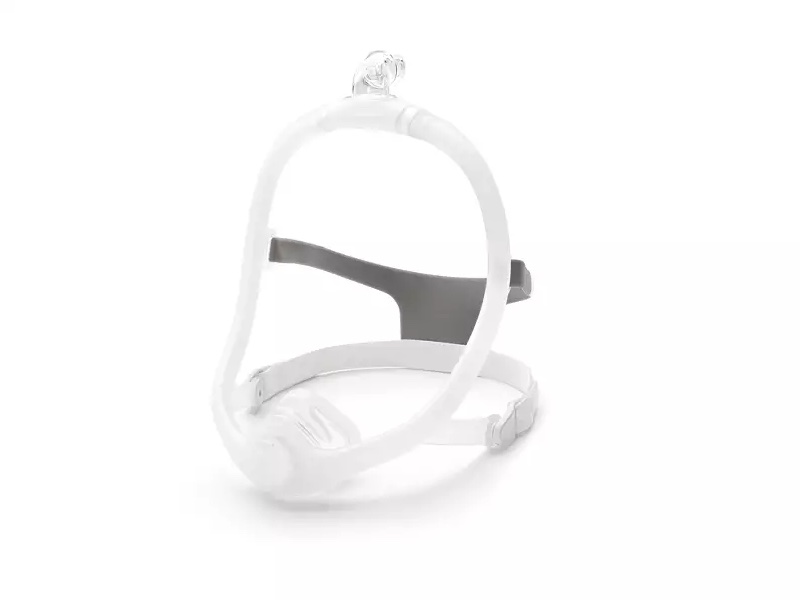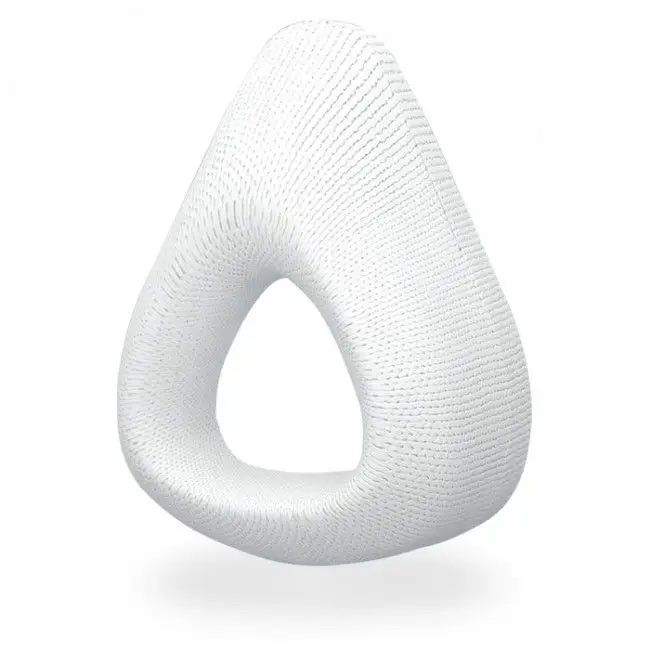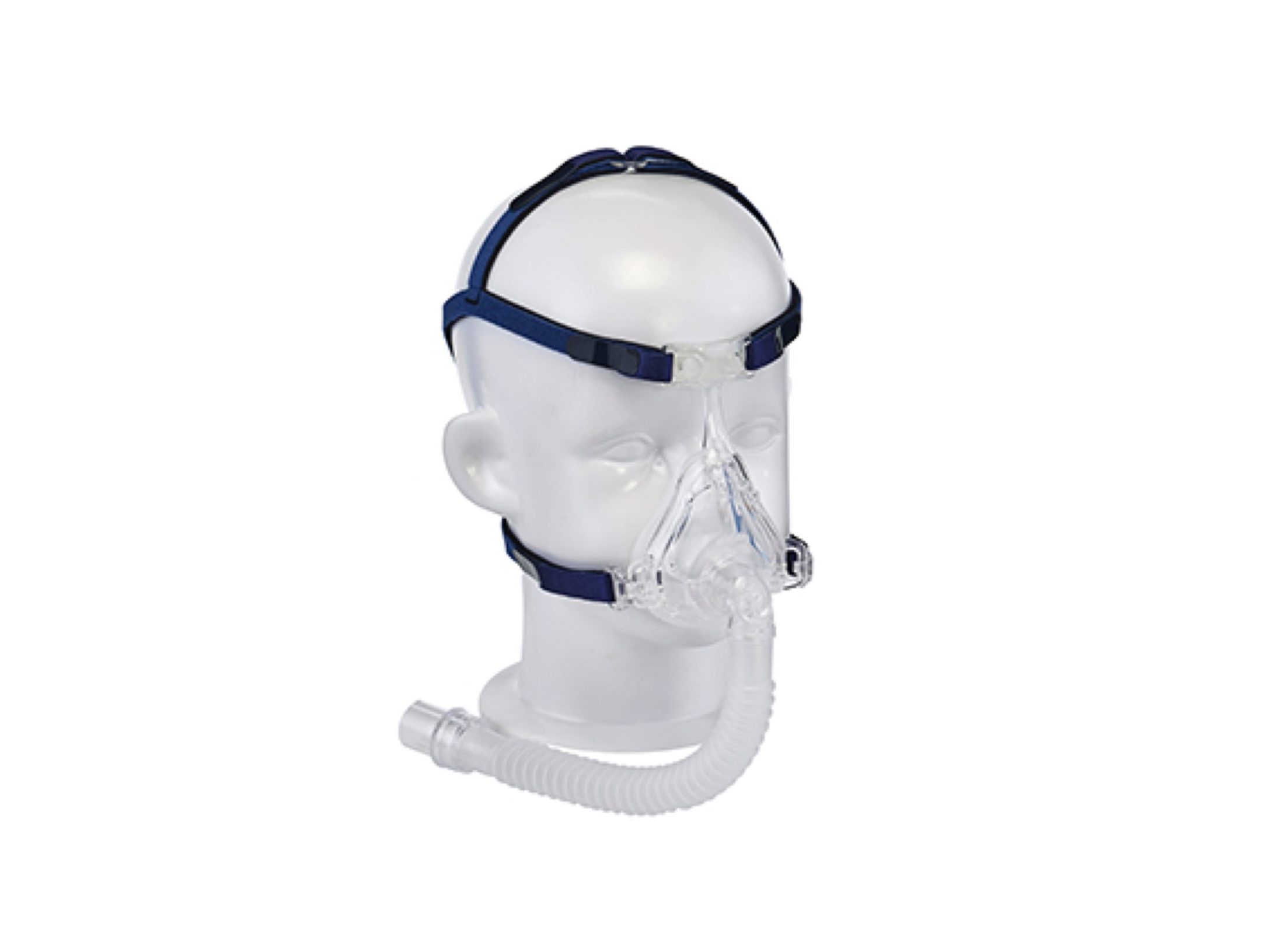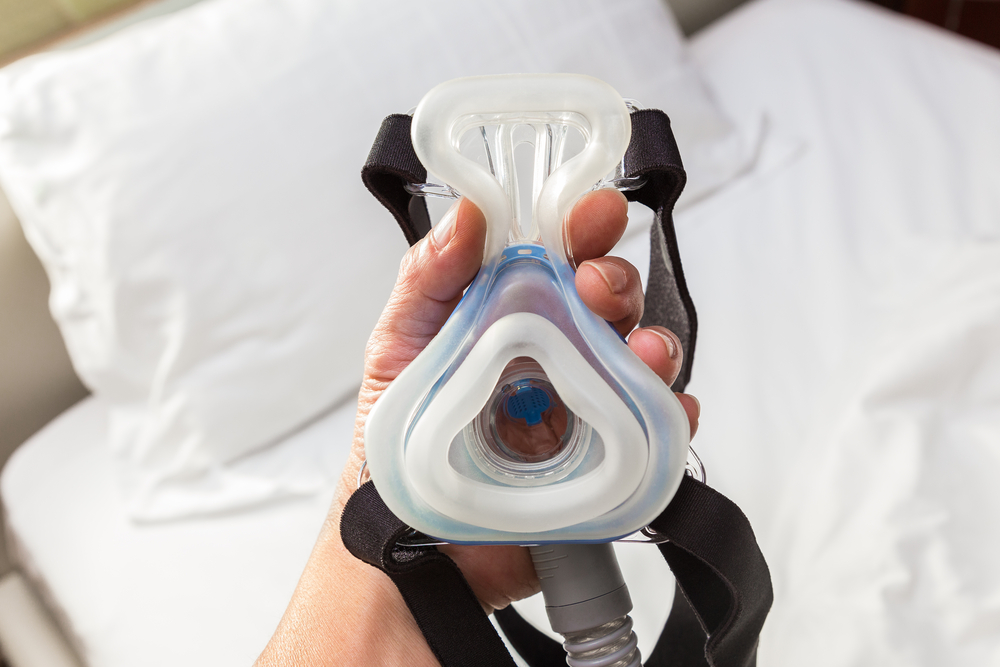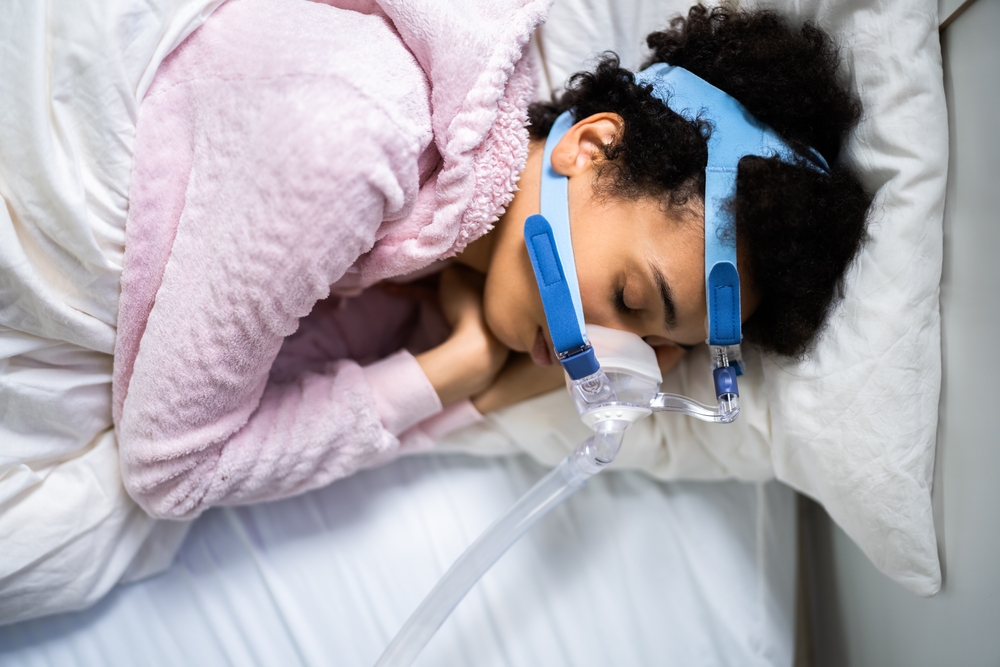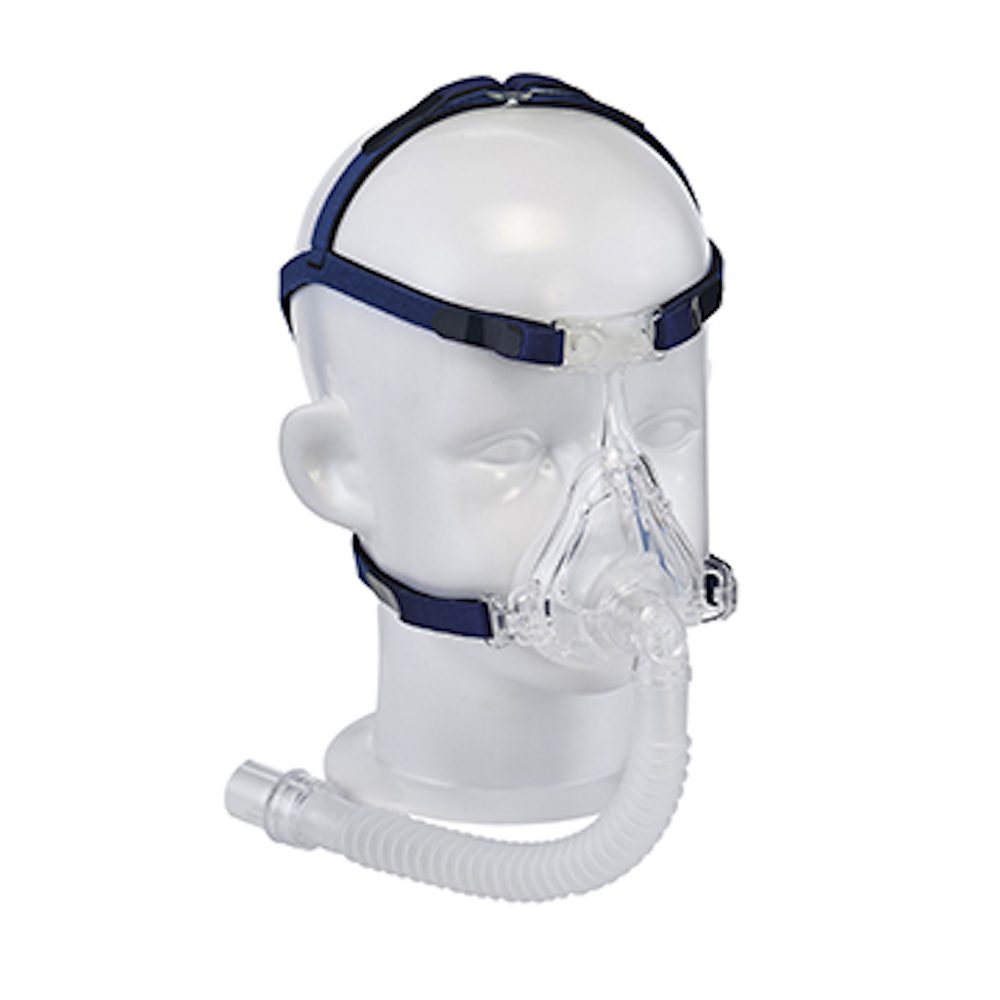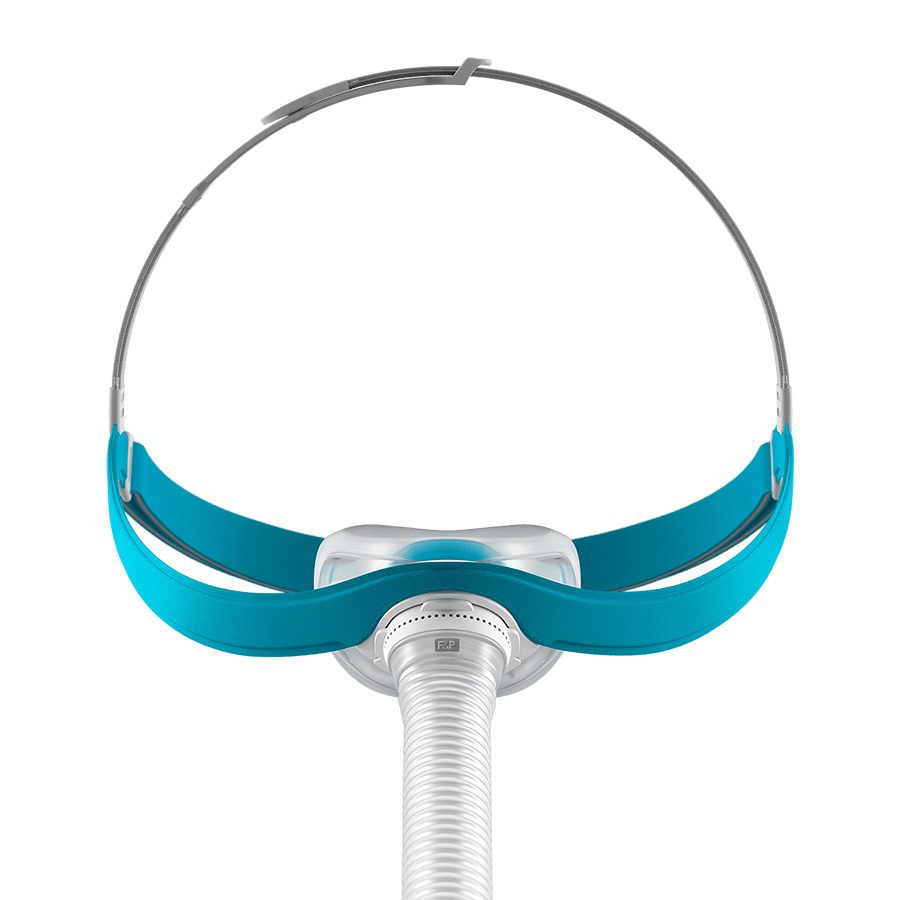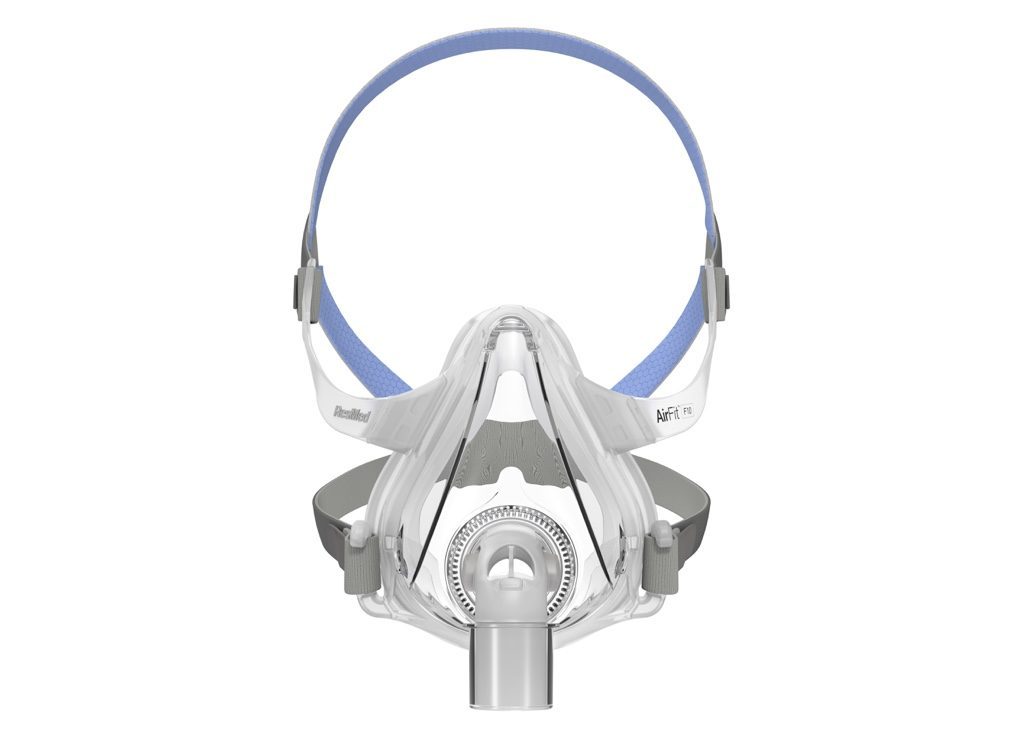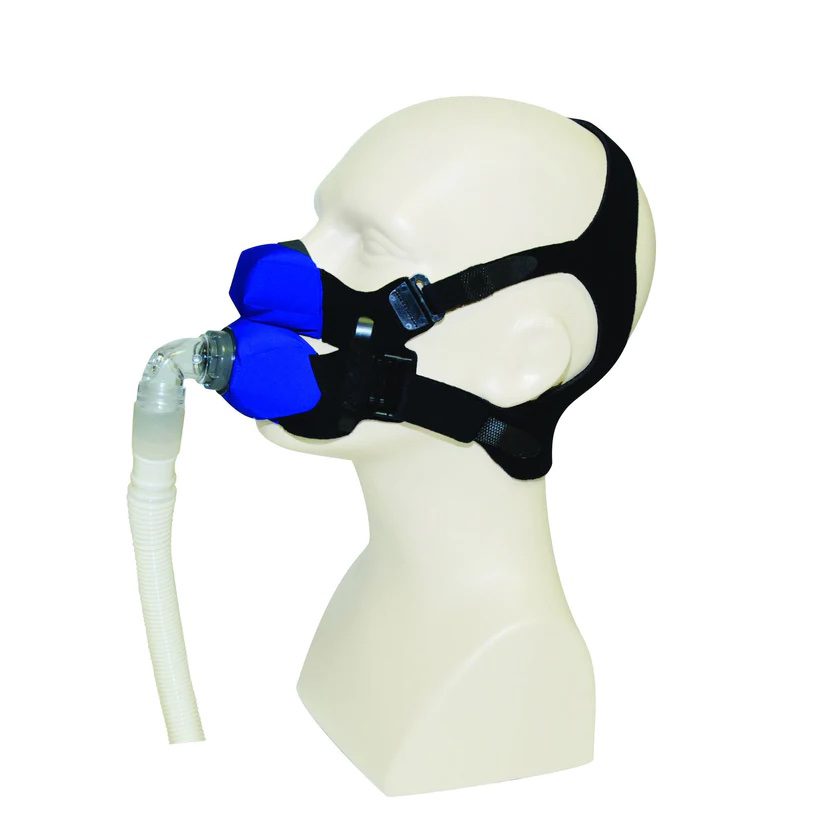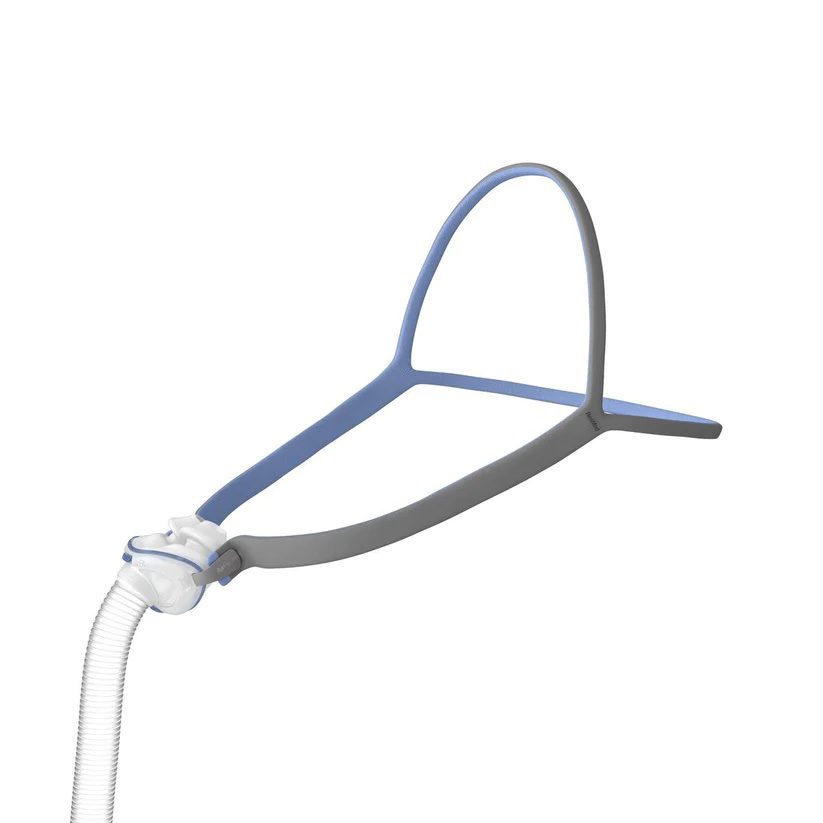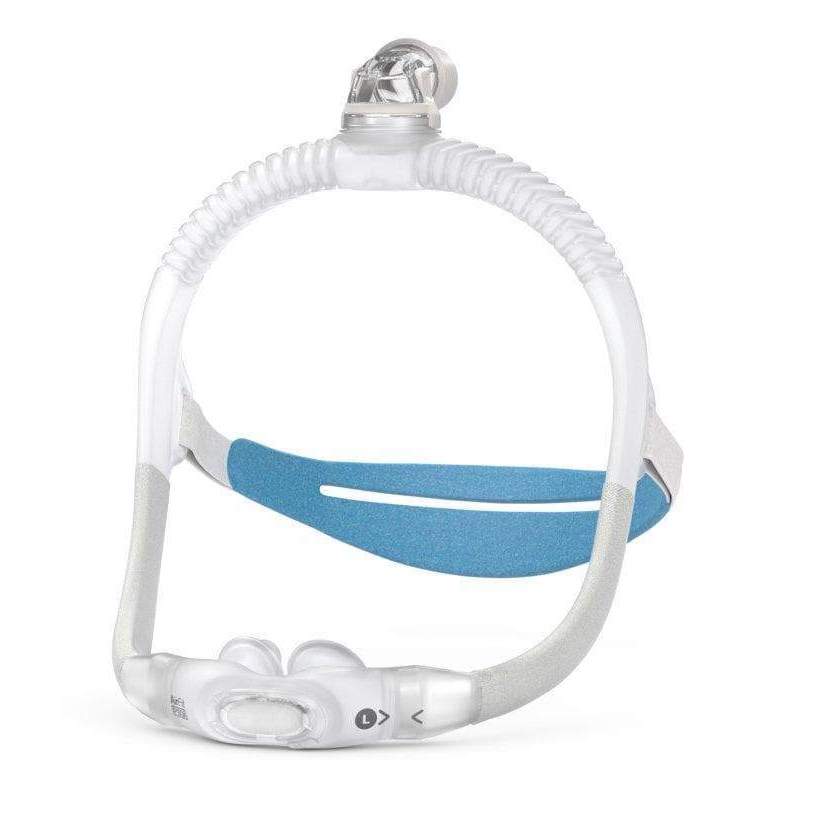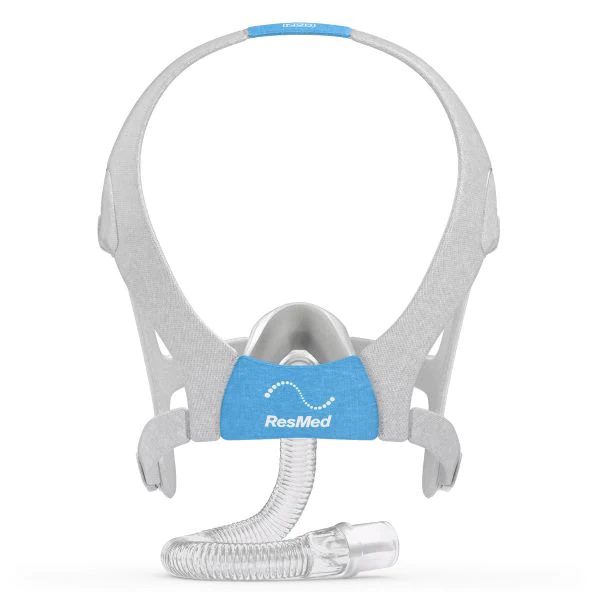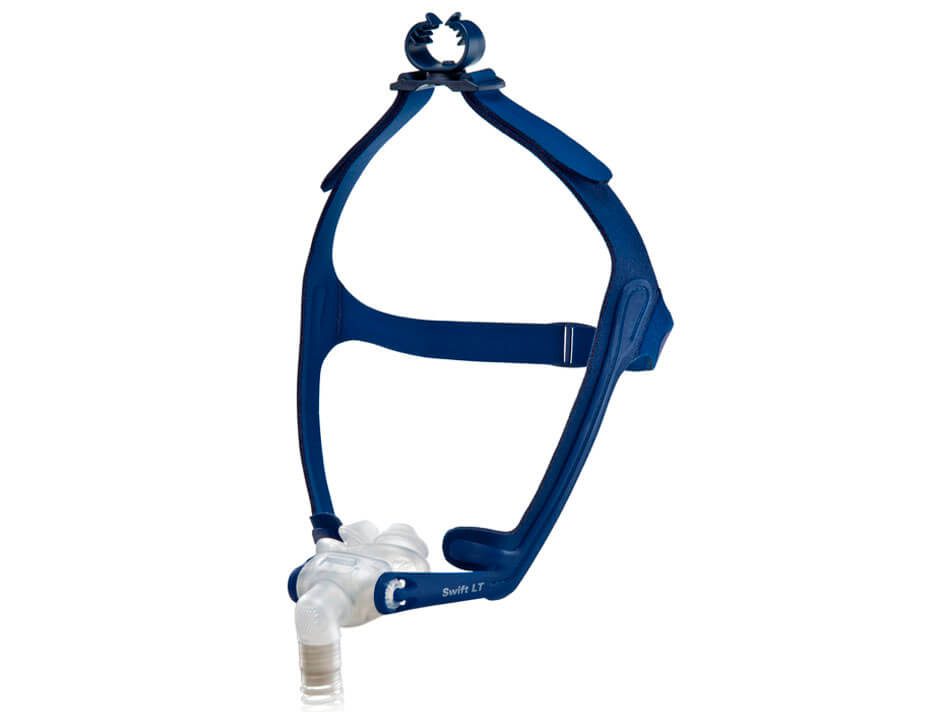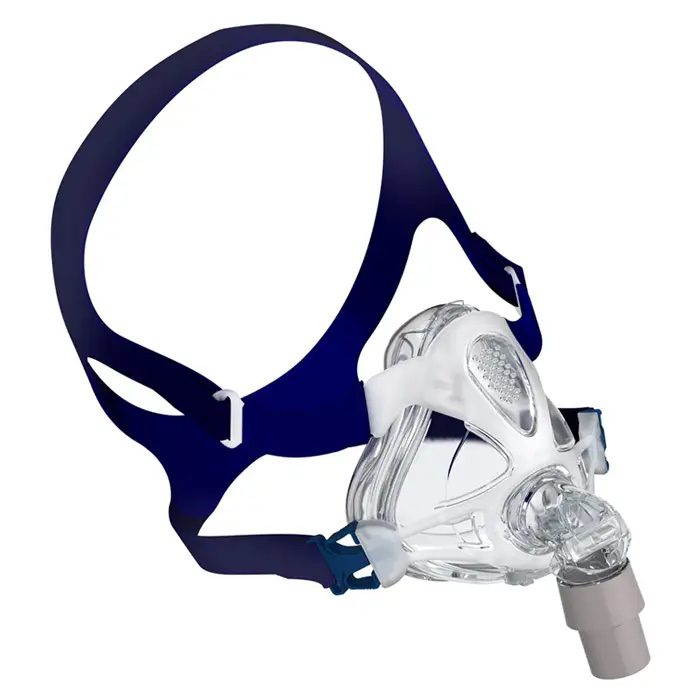Continuous positive airway pressure (CPAP) therapy is among the most common treatment options for people with obstructive sleep apnea. CPAP machines deliver a prescribed level of pressurized air to the user through a hose that’s connected to a mask.
There are a few basic CPAP mask styles. While nasal masks and nasal pillows deliver air to just the nose, full-face masks cover both the nose and mouth. Full-face models come in several varieties, and choosing the right one for your needs is essential to ensuring CPAP therapy is effective.
We’ll take a closer look at several of the best full-face CPAP masks. We’ll also discuss the benefits and limitations of this mask style and who might be a good fit.
Is a Full-Face CPAP Mask Right for Me?
A full-face CPAP mask is designed to cover the user’s mouth and nose, creating an effective seal to provide sleep apnea therapy. It’s one of the most common types of CPAP masks.
| Ideal For: | Who Should Keep Looking: |
|---|---|
|
|
Best Overall
ResMed AirTouch F20 Full Face CPAP Mask with Headgear
Ideal For
- People who dislike the feel of silicone mask cushions
- Those looking for an easy-to-clean product
- CPAP users who want quick-release hosing
Who should keep looking
- Individuals who can’t use masks with magnetic clips
- Those who don’t need a quiet mask
- People with a lot of facial hair
-
Price
$154
-
Size
Small for Her, Small, Medium, Large
-
Type
Full Face
The ResMed AirTouch F20 Full Face CPAP Mask with Headgear features a memory foam cushion that provides a secure seal while gently conforming to the face. The mask’s QuietAir vent technology muffles the noise of the pressurized air for a quieter CPAP experience.
The quick-release elbow allows you to easily detach the mask from the tubing if you need to get up during the middle of the night. The headgear also has magnetic clips to make removing the mask uncomplicated. However, you may want to consider a different model if you or a sleep partner has an implanted medical device due to the potential risk of interactions with the magnetic headgear clips.
Another benefit of the memory foam cushion is that it doesn’t require daily washing if it’s replaced regularly, which is recommended every 30 days. Instead, the manufacturer suggests cleaning the cushion with a CPAP wipe after each use. The mask is also compatible with the silicone AirFit 20 cushion.
The frame should be replaced every three months and the headgear every six months. The mask comes with a 90-day manufacturer’s warranty.
Disclaimer: In November 2023, ResMed issued a safety notice cautioning that the magnetic clips on this model and other ResMed masks should be kept at least 6 inches away from any implanted medical device that may be affected by magnets, including pacemakers and insulin pumps. The company also warns that other metallic implants such as valves, stents, and certain dental implants may be impacted by the magnetic clips.
Use this SleepApnea.org link for the most current discount on ResMed products
Shop NowBest Value
Circadiance SleepWeaver Anew Full Face CPAP Mask
Ideal For
- People whose face is irritated by traditional full-face mask materials
- Those prone to moisture buildup on their face when using a mask
- Individuals looking for a mask that doesn’t have magnetic clips
Who should keep looking
- Those who prefer a top-of-head hose configuration
- Individuals wanting a more snug fit to their mask
- People who want a design with a single mask cushion
-
Price
$84
-
Size
Regular, Large
-
Type
Full-Face
The Circadiance SleepWeaver Anew Full Face CPAP Mask has many premium features for its price-point. The dual interface design seals around the nose and mouth with no gaps, making it a good choice for individuals who breathe through their mouth.
The open-face configuration allows unrestricted vision to read or watch TV while using the mask. A 90-degree elbow connector and two quick-release snaps make removing the mask quick and simple.
The mask is made of nonallergenic cloth that wicks away moisture and lets the skin breathe. The cloth material also makes the mask lightweight and less likely to leave marks on the user’s face.
The mask comes with a 90-day warranty from the manufacturer. Depending on the retailer, you may need to purchase headgear separately.
Use this SleepApnea.org link for the most current discount on Circadiance products
Shop NowBest for New CPAP Users
Philips Respironics DreamWear Full Face Mask With Headgear (Fit-pack)
Ideal For
- Those seeking a mask compatible with nasal pillow and mask cushions
- People who frequently experience red marks and irritation from CPAP masks
- Active sleepers
Who should keep looking
- People who can’t use masks with magnetic clips
- Those who dislike masks with silicone cushions
- Sleepers who prefer more traditional CPAP masks
-
Price
$169
Sleepers new to CPAP often have trouble finding a mask that feels comfortable on first use. The Philips Respironics DreamWear Full Face Mask With Headgear (Fit-pack) has a minimal contact design that reduces the potential for irritation, even for those who are not used to CPAP.
The mask can be used either with DreamWear nasal pillows or mask cushions, so you can find the option that best fits your needs without buying a second mask. Both options rest under your nose, preventing red marks on the nose bridge. Top-of-head tubing ensures your vision isn’t obstructed, making it a great choice if you like to watch TV or read before bed.
Four adjustable velcro straps allow you to customize the mask’s fit to your face. You shouldn’t experience any air leakage, even if you toss and turn at night. Meanwhile, magnetic clips allow you to easily remove the mask without changing your customized fit. However, you may want to opt for a different mask if you have an implanted medical device since they can interact with the magnetic clips.
Small, Medium, Large, and Medium Wide masks come in the fit pack, so you can find the size that best fits your head. Singular Sleep offers a subscribe and save option, where you can sign up for automatic mask deliveries and save 5% on each purchase. Returns are allowed within 30 nights for a full refund minus a 15% restocking fee.
Use this SleepApnea.org link for the most current discount on Philips Respironics products
Shop NowWhy We Picked These
Our team at SleepApnea.org stays current on the latest developments in CPAP technology to ensure our readers have up-to-date information. Each brand and product are analyzed along with customer reviews to determine their effectiveness. Our top picks are regularly updated using the most recent data to help our readers make the best decision possible.
What You Should Consider When Choosing a Full-Face CPAP Mask
Selecting a comfortable mask that seals properly is essential to CPAP therapy adherence and effectiveness. Let’s take a closer look at the factors you should consider when deciding which mask to purchase.
CPAP Full-Face Mask Considerations
| Price | The price for a full-face CPAP mask varies depending on its style and features. Most masks cost between $50 and $200. |
| Size and Fit | Mask size and fit are essential to receiving effective therapy. Many companies have different size options available and offer trial periods to ensure that you find the one that works best for your facial structure. |
| Sleep Position | If you sleep on your back, you’re less likely to have difficulty with any type of CPAP mask. For side and stomach sleepers, it’s more challenging since bed pillows can cause the mask to dig into your face or become dislodged. Some full-face masks use unique designs or attachments to minimize the risk of mask leaks or tangled tubing. Another option is CPAP pillows, which are designed with special shapes or cutouts to leave space for the mask and hose. |
| Compatibility | There are numerous CPAP machine models and accessories available. However, they aren’t all interchangeable. Confirming your mask is compatible with your device is vital. |
| Comfort | If your mask is uncomfortable, you’re less likely to wear it regularly. Besides getting the proper fit, you can talk to your doctor about humidification and pressure adjustments. |
| Quality Materials | A high-quality mask made from durable materials will generally outlast cheaper alternatives and may save you money in the long run. |
Other Popular Types of CPAP Masks You Can Choose From
Full-face masks are often the CPAP mask style of choice for people who breathe through their mouth, experience frequent nasal congestion, or require high pressure settings. However, nasal masks and nasal pillow masks — which deliver pressurized air to just the nose — are popular styles for certain types of CPAP users.
TAP-PAP therapy is a combination oral appliance with a CPAP mask or nasal pillows that is connected to the oral appliance and does not require head straps to hold it in place.
CPAP Nasal Mask
Nasal masks are like full-face masks in that they fit snugly to your face to form a seal. The difference is that a nasal mask only covers your nose.
| Benefits: | You Shouldn’t Use One If: |
|---|---|
|
|
Nasal Pillow Mask
A nasal pillow mask rests underneath your nose. Instead of a traditional mask cushion, this style includes pillows that are inserted into the nostrils to deliver air directly to the nasal passages.
| Benefits: | You Shouldn’t Use One If: |
|---|---|
|
|
Less Common Versions of Full-Face CPAP Masks
While models that cover the nose and mouth are the most common type of full-face mask, other versions of this mask category include hybrid CPAP masks and total face masks.
- Hybrid CPAP masks: Traditional full-face CPAP masks extend to the bridge of the nose to create a seal around both the nose and mouth. Hybrid CPAP masks also deliver pressurized air to the mouth but include a nasal pillow that seals the nostrils as well.
- Total face CPAP masks: As the name suggests, total face masks cover the entire face, including the eyes. While it may seem counterintuitive, this larger style of mask can sometimes reduce feelings of claustrophobia in people who have difficulty tolerating the more direct airflow of nasal masks or traditional full-face masks.
Where Can You Buy a Full-Face CPAP Mask?
You can purchase a full-face CPAP mask either in person or online. For in-person shopping, durable medical equipment providers usually work closely with sleep clinics or hospitals. While the prices are typically higher, these companies generally offer extensive support, which is helpful for people new to sleep apnea therapy.
Authorized online CPAP retailers generally have a wider selection of masks at lower prices. Be sure to check the compatibility of a given mask with your CPAP machine and tubing. While many machines are universally compatible with any mask, some require certain masks or have specific hose requirements.
Do You Need a Prescription for a CPAP Mask?
Like CPAP machines, masks used for CPAP therapy require a prescription. However, replacement cushions and headgear can be purchased without one. Before writing a prescription, your doctor will evaluate your condition and may suggest an overnight sleep study to determine the severity of your symptoms.
Speak with your doctor or sleep specialist about mask options. Your preferred sleep position, CPAP pressure requirements, and other health considerations all play a role in the appropriateness of a mask style.
Will Health Insurance or Medicare Cover the Cost of Your CPAP Mask?
While most health insurance providers cover at least part of the cost of CPAP machines, coverage varies for accessories like masks and hoses. Check with your insurance provider for coverage specifics. Depending on where you purchase a CPAP mask, you may need to submit a reimbursement claim.
Medicare has specific CPAP requirements. In general, Medicare typically covers a three-month trial of CPAP therapy. After the trial period, Medicare may cover 80% of the purchase cost of CPAP accessories — including a mask — as well as 80% of the rental cost of a machine for 13 months after you meet your Part B deductible and if your doctor documents that CPAP therapy is helping you.
How to Wear a Full-Face CPAP Mask
To wear a full-face CPAP mask, place the mask against your face as you lift the straps over your head. Once the top strap is in place, bring the lower strap around and connect it. Tighten the top strap before tightening the bottom one.
How Should a Full-Face CPAP Mask Fit?
A full-face CPAP mask should be snug against your face but not so tight that it leaves red marks on your face or causes leaks to occur. The mask should feel comfortable. If it’s not, it might be the wrong size or shape for your facial structure.
How Do You Stop Leaks With a Full-Face CPAP Mask?
Leaks from full-face CPAP masks are often due to the straps being too tight or loose. It’s important to make sure you adjust the straps when you’re lying down since your facial shape is different than when you’re standing. Other reasons for leaks include using the incorrect mask size or style for your face or using a mask that is worn out or has debris on the mask cushion.
Some CPAP users find mask liners beneficial. These soft pieces of fabric are placed between the mask cushion and your face and can help prevent leaks, increase comfort, prevent irritation, and reduce excess moisture.
CPAP Full-Face Masks
When using a full-face CPAP mask, breathe as normally as possible. Many CPAP machines come with ramp functions that let you gradually increase the air pressure over a set period of time when you turn the machine on. If your doctor approves, try using the ramp feature to make it easier to adjust to the sensation of breathing through the mask.
To clean a full-face CPAP mask, you should use warm water and mild soap that doesn’t contain perfumes or moisturizers. Hand-wash the mask and rinse with warm water. Let the mask air dry before reassembling it. Clean your mask daily to prevent the buildup of grime and bacteria.
CPAP masks and tubing should be replaced every three months on average. Mask cushions should be replaced every month, while headgear and chin straps have an average lifespan of six months.
Since CPAP mask straps can cause matting or tangling, especially for those with long hair, it’s helpful to place a barrier between the straps and your hair. Some examples of barriers include a sleep cap, scarf, bandana, skull cap, beanie, or helmet liner.
